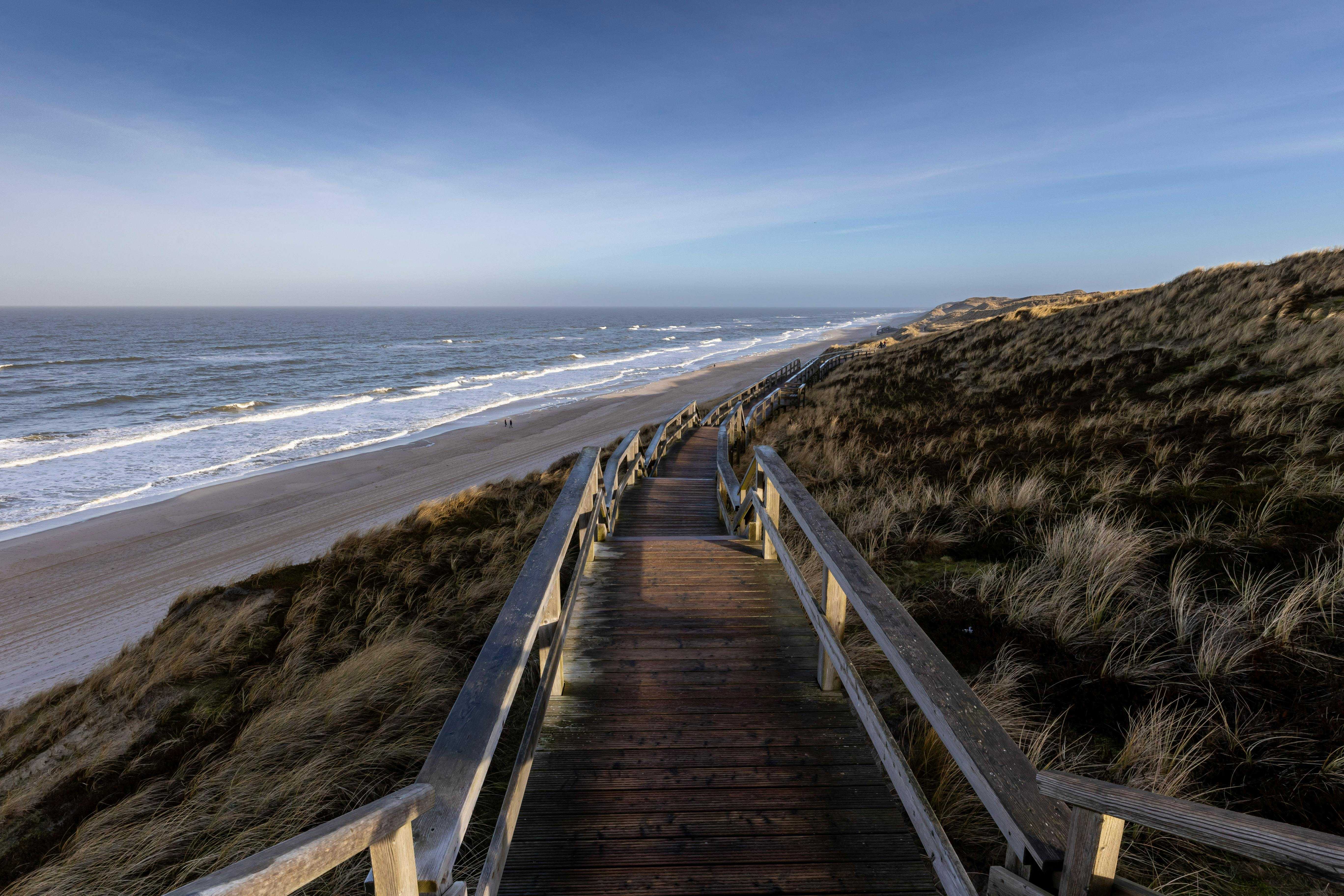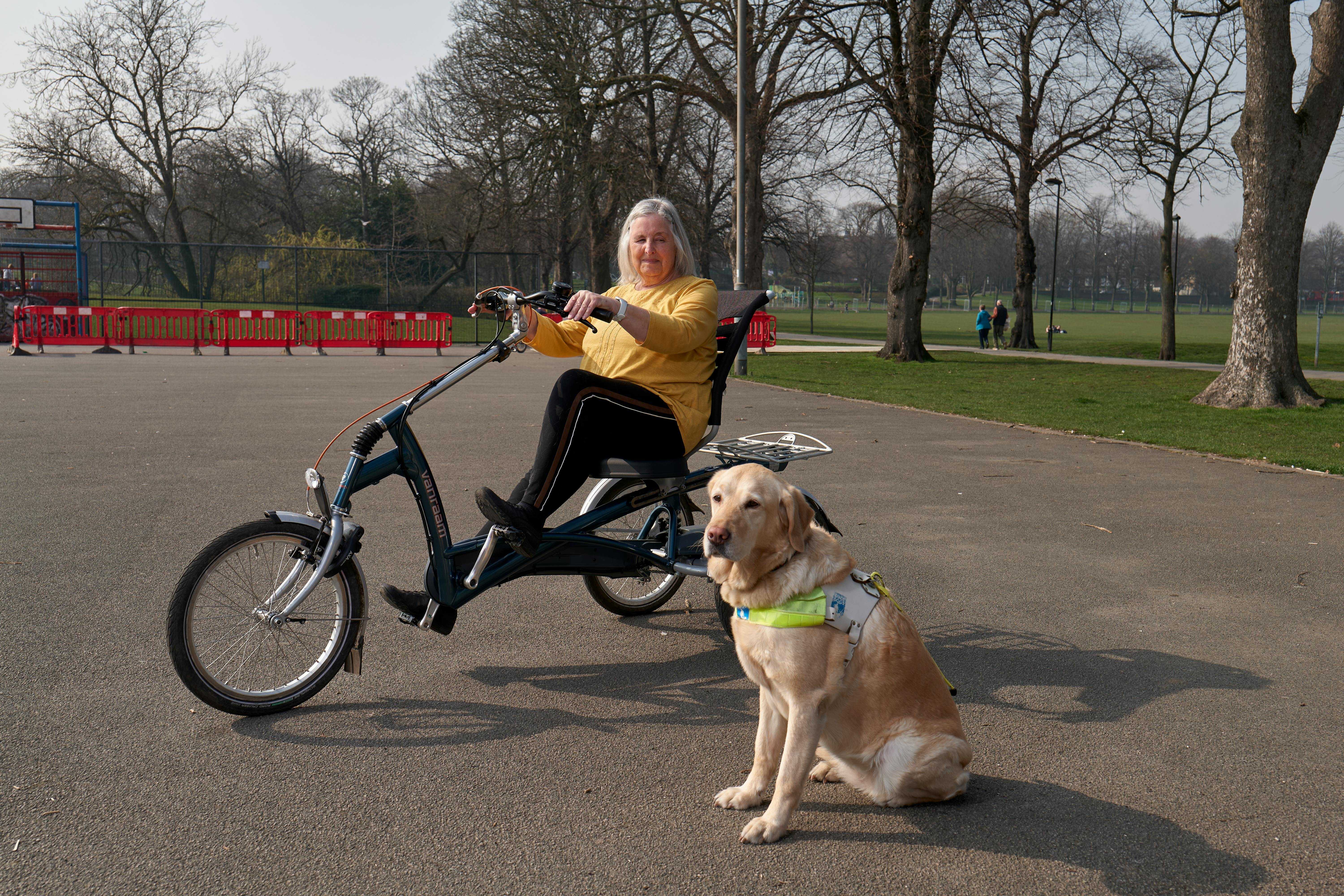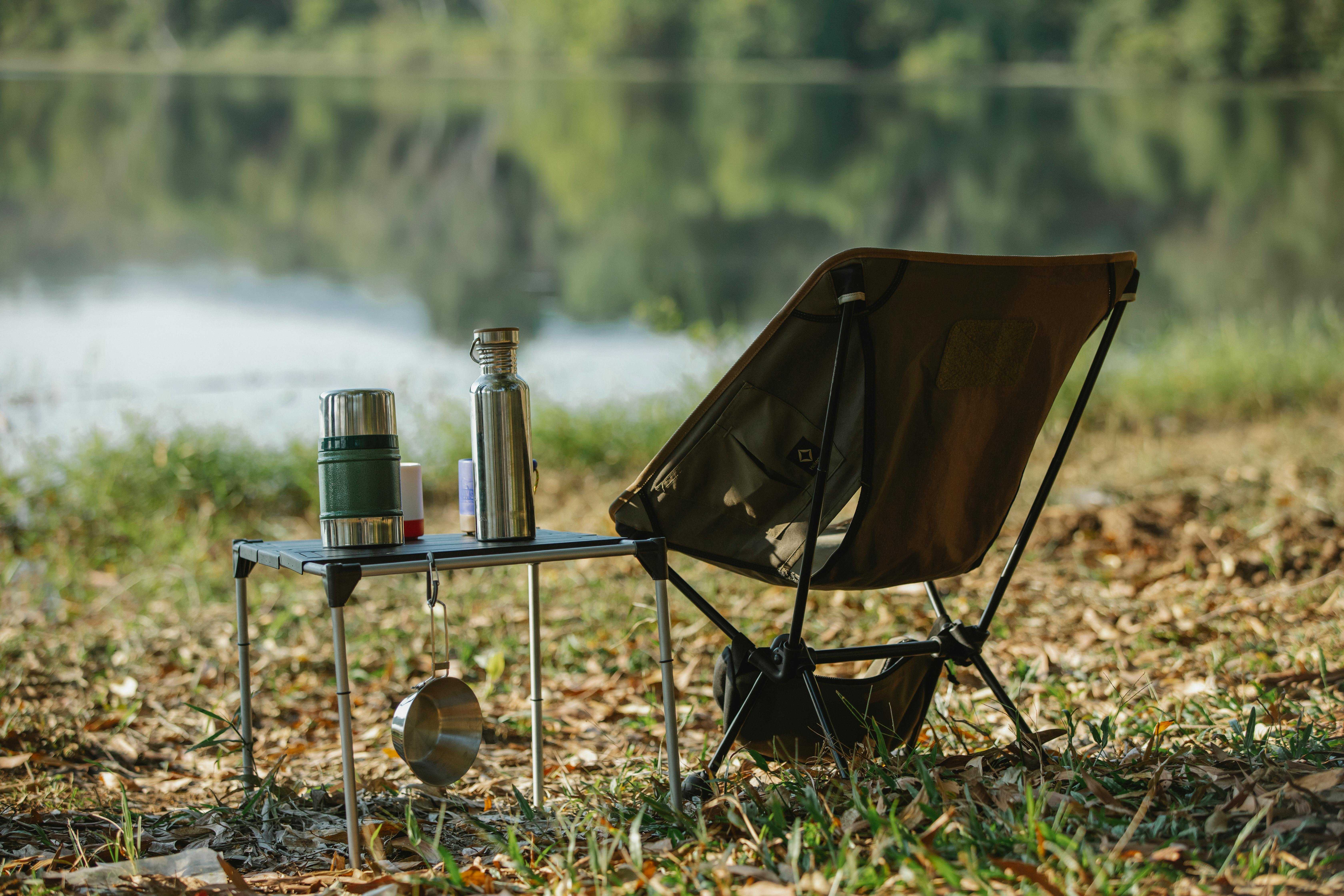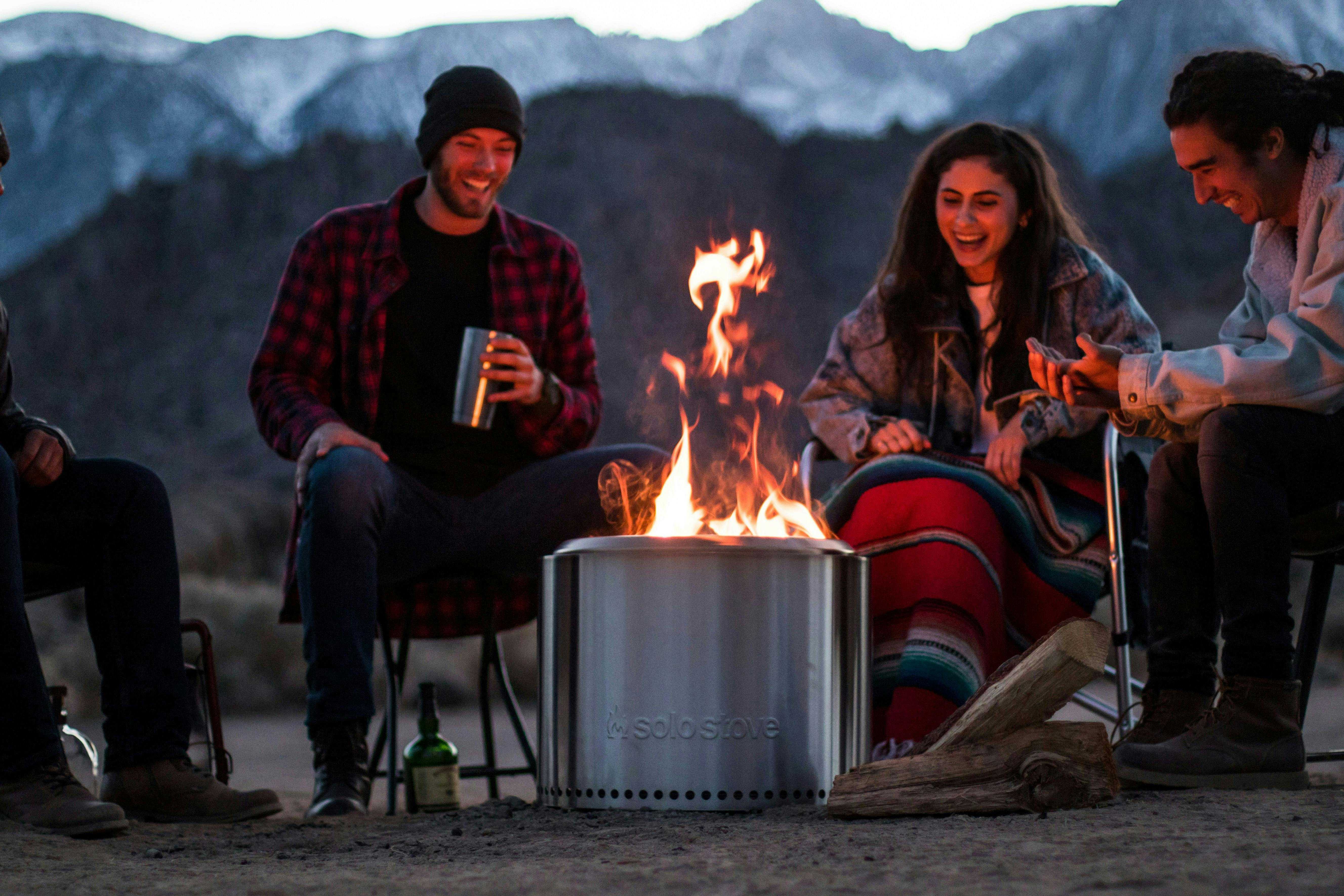Top tips: Preparing for an accessible camping holiday in the great outdoors
Glimmers of summer are finally popping up in the UK, and with the prospect of warmer weather on the horizon you may already be planning your summer holidays.
In 2024, our research with 2,000 people from the disability community showed that only half of disabled people believe that camping, caravanning or glamping is accessible. However, with some careful planning this does not have to be the case! In fact, when we asked disabled travellers who have previously booked a holiday through Pitchup to rate their experiences of accessibility, 89% believed outdoor holidays to be very or somewhat accessible.
At Pitchup.com we believe the outdoors is for everyone, and we’re working hard to make sure as many people as possible can enjoy the benefits of a holiday in nature. Use our guide below to help you plan your next outdoor holiday, so that you – or someone you’re travelling with – can travel comfortably and safely.
Access to the best views, wildlife and waterfalls is only a few clicks away.

Where can I find an accessible campsite, caravan park or glampsite?
Use our new accessibility filters to search for a stay that meets your needs. From step-free campsites to wheelchair-accessible showers and toilets, to small, quiet sites in rural locations there is plenty of choice for a variety of needs.
Once you’ve found a campsite you like the look of, check the details of its accessibility features, and look at photos and customer reviews to be sure this is the site for you. If you’d like to, you can leave details of your accessibility requirements, such as asking for a pitch closer to the bathrooms, in the ‘special requests’ box on the booking page. Sites cannot guarantee they can meet all requests, but they will do their best to accommodate your requests where possible.
Consider what kind of site and accommodation type will work best for your needs, and the needs of your group if travelling with others:
- Would you be most comfortable bringing your own accommodation such as a tent, caravan or motorhome, or would on-site accommodation – like cabins, lodges and static caravans – work better for you?
- What kind of terrain is easiest for you to navigate? Do you need smooth tarmac accessways, or would gravel, grass or some slopes be ok?
- Consider your bathroom needs, and whether you’d prefer to have access to a private bathroom, or are happy to use on-site shared facilities.
- Lastly, think about whether you’ll need access to electricity to charge mobility devices or medical equipment, and choose your pitch type or accommodation accordingly.
How can I travel to a campsite, caravan park or glampsite?
Depending on your personal preferences and the transport available to you, planning transport ahead of time will help you have a a relaxing start to your trip and a great time on holiday.
If you opt to travel by public transport, use the search filters ‘pick up from public transport’ and ‘public transport nearby’ to help you find a suitable site. Each site listing includes more details on which public transport is available, such as the closest train station or bus stop, and how to book the ‘pick up’ service where available.
If you’re using public transport in the UK remember to book any assistance ahead via Passenger Assist so the station staff know to expect you and what support you’ll need.
If you’re travelling by car, use popular apps such as Google Maps, Waze and What 3 Words to plan your route, and don’t forget to schedule regular breaks for refreshments and toilet stops if travelling further afield.
If you have an electric vehicle, you can use the ‘Electric car charging point’ filter to find a site that will allow you to charge your vehicle (additional costs may apply for this). You can also select ‘car parking by pitch/unit’ or ‘accessible parking by pitch’ to be sure that you can drive in and park right next to your accommodation.
Where can I find accessible things to do?

Making a schedule in advance – while at risk of sounding like you’re over-planning your fun – can help you to manage your time, energy and make the most of your holiday.
1. Check the listing page of your chosen campsite for inspiration on what to do in the local area. This will often list the site’s favourite nearby tourist attractions and activities, along with local pubs. The customer reviews are also a great place to see which nearby attractions other visitors have enjoyed visiting during their stay.
2. Check out our new collection of guides to UK national parks, which contains a detailed accessibility guide for each location. Here you'll find details of inclusive activities and sports, animal experiences, cultural attractions, accessible hikes and more!
3. The local tourist board (such as Visit Cornwall, for example) will also have information on accessible local attractions, from museums and historic houses to accessible beaches and nature reserves.
4. You can also use great online resources such as Euan’s Guide, Sociability and AccessAble to find accessibility information for public venues that have been reviewed by the disability community.
5. There are also some wonderful local initiatives to be aware of in the UK, such as Miles without Stiles, which is working to create more accessible countryside paths. Check for a Miles Without Stiles group in the region you’re visiting, as well as Access for All initiatives that provide specialist equipment at several National Landscapes and forests.
6. If you’re venturing to Europe, there are some wonderful websites and blogs written by disabled travellers that will help you find your way around. WheelchairTravel.org has a great list of disability-focused blogs that have given us serious wanderlust.
Remember: You don’t need to leave the campsite to have fun! Revel in the stillness, peace and quiet, read a book or simply listen to the sounds of nature. Use the filters in the ‘Leisure on site’ section to find other on-site activities or facilities that will keep you and your group entertained.

What should I pack for a comfortable accessible trip?
Having the right equipment is a key consideration for a comfortable stay for all campers, so think ahead about what you’ll need to bring for an enjoyable stay.
If you’re staying in a tent (whether bringing your own or booking a bell tent or safari tent), look for tents with taller, wider doorways so you don’t have to bend or crouch. Also, use the photos to check the entrance is flat without any material folds that could cause you to trip or get caught on wheelchairs and mobility devices.
Likewise, when thinking about sleeping arrangements and bedding, a thick or tall air mattress with lots of support or a raised camping bed will make it easier to transfer in and out of bed if you have a mobility disability or are a wheelchair user. Being slightly raised from the floor should offer you some more warmth too! A comfortable mattress will help to avoid any pressure sores or other discomforts, and add a touch of luxury to make it feel more like you’re glamping.
Don’t forget other camping essentials like headtorches, a coolbox and ice packs, insect repellents and plenty of warm waterproof clothes. Check out Pitchup’s Camping checklist for beginners to make sure you’re well prepared with all the essentials.
Lastly, if you use any assistive equipment or mobility aids, check whether they can be adapted for your camping trip – for example, could you add all-terrain wheels to a wheelchair to make it easier to get around? If that’s not an option, check whether there is somewhere to hire an all-terrain chair, or any other equipment you require, close to your chosen campsite. Some campsites will be able to recommend local suppliers, and can even arrange for equipment to be delivered to the site for your arrival, so it's worth checking with the site in advance of your trip.
What food should I bring?

If you have strict dietary requirements, allergies or intolerances that affect your disability or chronic conditions, or if you’re travelling on a budget, you may want to consider meal prepping in advance for the most ease.
Use the Pitchup search filters to find sites with communal fridges and freezers where you can store your food, or bring along your own cooler. Some sites are able to re-freeze ice packs for you to keep your food fresh.
Ready to book your next adventure? Use the accessibility filters to find an accessible campsite!